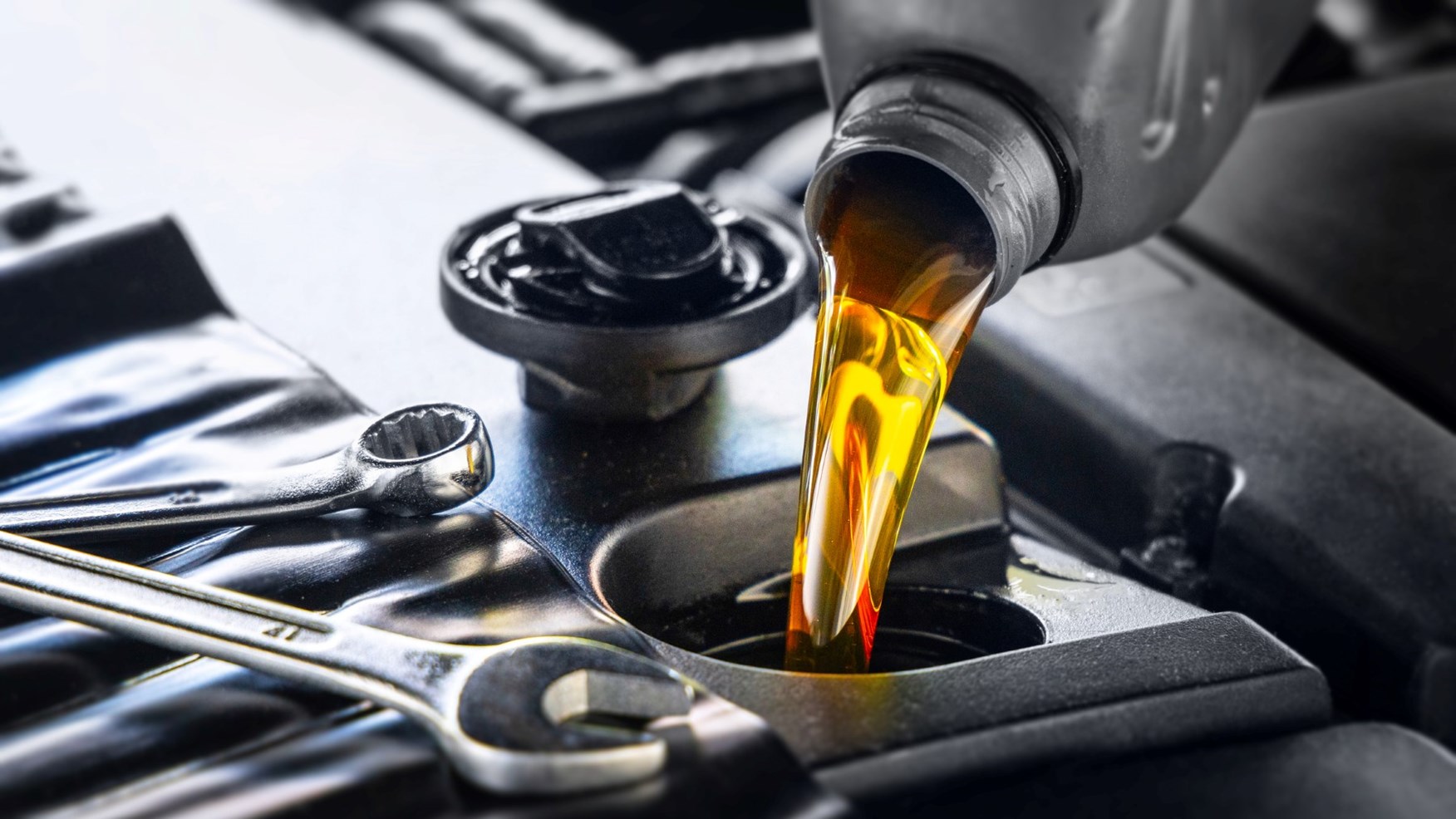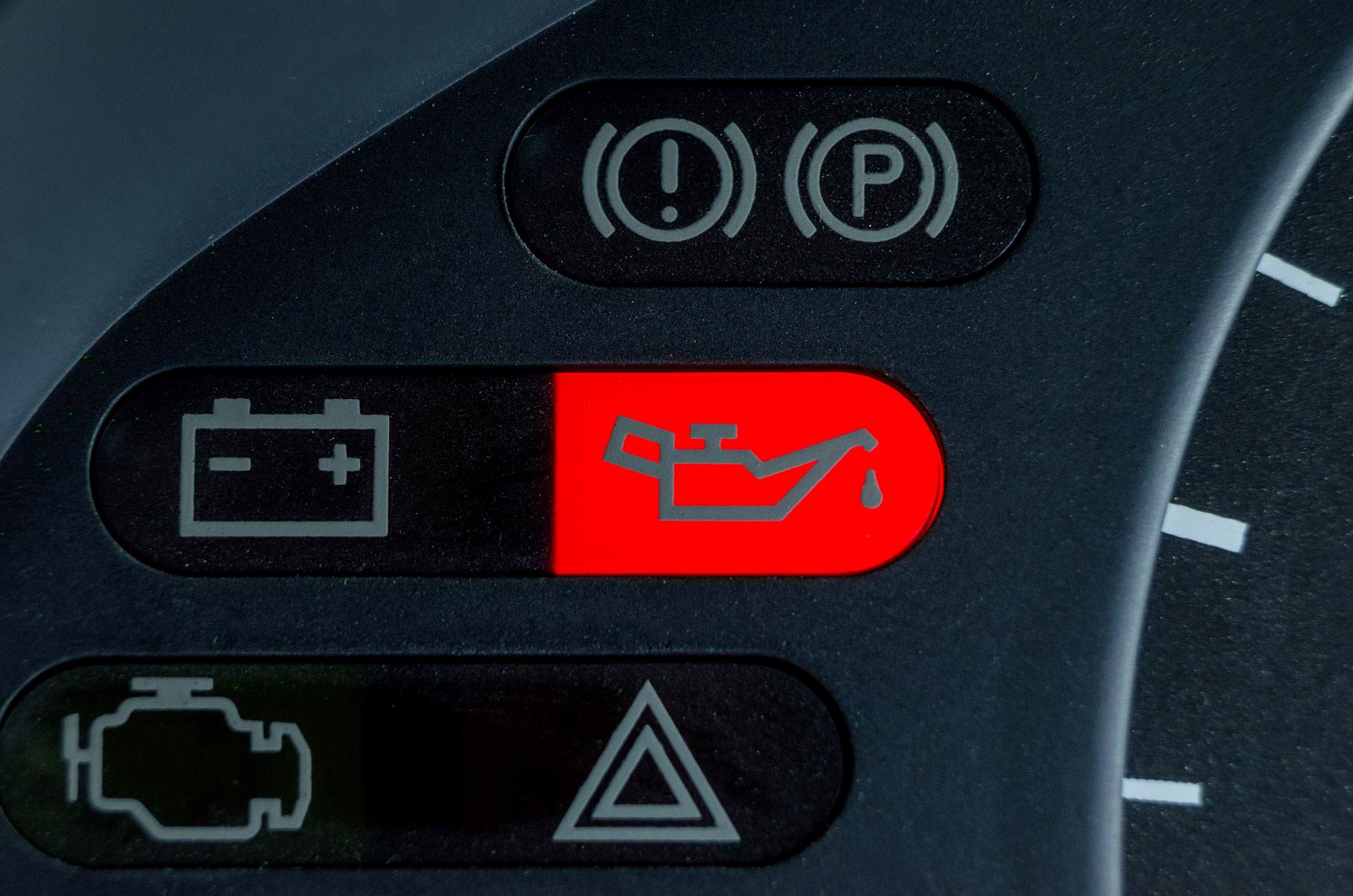Home>Automotive>The Ultimate Solution For Spilled Oil On Your Engine!


Automotive
The Ultimate Solution For Spilled Oil On Your Engine!
Published: January 16, 2024
Discover the ultimate solution for spilled oil on your engine with our automotive products. Keep your vehicle running smoothly and efficiently.
(Many of the links in this article redirect to a specific reviewed product. Your purchase of these products through affiliate links helps to generate commission for Noodls.com, at no extra cost. Learn more)
Table of Contents
Introduction
Spilled oil on your engine can be a messy and concerning issue for any vehicle owner. It not only creates an unsightly appearance under the hood but also poses potential risks to the engine's performance and longevity. However, fret not, as there are effective solutions to address this common problem. In this comprehensive guide, we will delve into the impact of spilled oil on your engine, and most importantly, we will unveil the ultimate solution with a step-by-step approach to tackle this issue effectively. Additionally, we will provide valuable prevention tips to help you avoid future oil spillage, ensuring the optimal functioning and cleanliness of your engine. So, let's dive into the world of automotive care and discover the ultimate remedy for spilled oil on your engine!
Understanding the Impact of Spilled Oil
Spilled oil on the engine can have far-reaching consequences, extending beyond mere cosmetic concerns. The ramifications of oil spillage encompass a spectrum of issues that can compromise the engine's performance and overall functionality.
Environmental Hazard
When oil seeps onto the engine and surrounding components, it can lead to environmental hazards if not addressed promptly. The leaked oil can drip onto the ground, posing a threat to the ecosystem and potentially contaminating the soil and water sources. This environmental impact underscores the urgency of addressing spilled oil on the engine.
Fire Hazard
Oil is flammable, and when it accumulates on the engine, it increases the risk of a fire hazard. The combination of high temperatures within the engine compartment and the presence of spilled oil can elevate the likelihood of a fire, presenting a serious safety concern for vehicle occupants and bystanders.
Degradation of Engine Components
Spilled oil can infiltrate critical engine components, including electrical connections, hoses, and belts. Over time, the oil can degrade rubber seals and gaskets, leading to potential leaks and diminished performance. Additionally, oil contamination can compromise the functionality of sensors and other delicate engine parts, resulting in erratic operation and potential mechanical failures.
Heat Retention and Overheating
When oil accumulates on the engine, it can impede heat dissipation, leading to elevated temperatures within the engine compartment. This can contribute to overheating issues, which may adversely affect the engine's performance and longevity. Over time, excessive heat can degrade the oil itself, diminishing its lubricating properties and further exacerbating engine wear.
Aesthetics and Resale Value
Beyond the functional implications, spilled oil detracts from the visual appeal of the engine. Unsightly oil stains can diminish the overall aesthetics of the vehicle and potentially impact its resale value. Addressing oil spillage is essential not only for maintaining the engine's functionality but also for preserving the vehicle's appearance and value.
Understanding the multifaceted impact of spilled oil on the engine underscores the importance of promptly addressing and preventing this issue. By comprehending the potential consequences, vehicle owners can prioritize proactive measures to mitigate the risks associated with oil spillage.
The Ultimate Solution: Step-by-Step Guide
Addressing spilled oil on your engine necessitates a systematic approach to ensure thorough cleanup and restoration. Follow this step-by-step guide to effectively remedy the issue and restore your engine to its optimal condition.
-
Assessment: Begin by assessing the extent of the oil spillage on your engine. Carefully inspect the affected areas to determine the magnitude of the spill and identify the components and surfaces requiring attention. This initial assessment sets the stage for a targeted and comprehensive cleanup effort.
-
Cooling the Engine: Before initiating the cleanup process, allow the engine to cool down sufficiently. Working on a cooled engine not only minimizes the risk of burns but also facilitates the cleanup process by preventing rapid evaporation of the spilled oil, enabling more effective removal.
-
Absorbent Material Application: Once the engine has cooled, strategically place absorbent materials, such as cat litter or specialized oil-absorbent pads, over the spilled oil. These materials aid in soaking up the oil, facilitating its removal from the engine surfaces. Gently press the absorbent materials onto the affected areas, allowing them to absorb the oil thoroughly.
-
Scrubbing and Degreasing: Using a suitable engine-safe degreaser and a soft-bristled brush, carefully scrub the affected surfaces to dislodge the oil residue. Exercise caution to avoid damaging sensitive components while effectively removing the oil buildup. Thoroughly rinse the degreaser and oil residue from the engine surfaces using a gentle stream of water.
-
Repeat Application if Necessary: In cases of extensive oil spillage, it may be necessary to repeat the application of absorbent materials, degreaser, and scrubbing to ensure thorough cleanup. Assess the results of the initial cleanup and address any remaining oil residue to achieve a pristine engine appearance.
-
Inspection and Drying: After the cleanup process, inspect the engine to ensure that all traces of spilled oil have been effectively removed. Allow the engine to air dry completely before restarting it, ensuring that no residual oil or degreaser remains on the surfaces. This step is crucial to prevent potential fire hazards and ensure the engine's safe operation.
By following this comprehensive step-by-step guide, vehicle owners can effectively address spilled oil on their engines, restoring cleanliness and functionality while mitigating the potential risks associated with oil spillage. Implementing these meticulous cleanup measures contributes to the overall maintenance and longevity of the engine, safeguarding its performance and enhancing the vehicle's visual appeal.
Prevention Tips to Avoid Spilled Oil
Preventing oil spillage on the engine is paramount for maintaining a clean and well-functioning vehicle. By implementing proactive measures and adhering to best practices, vehicle owners can minimize the likelihood of oil leaks and spills, preserving the engine's integrity and aesthetics. Here are essential prevention tips to avoid spilled oil and uphold the optimal condition of your vehicle's engine:
Regular Inspection and Maintenance
Consistent and thorough inspection of the engine and its components is fundamental in identifying potential sources of oil leaks. Routinely check for signs of oil seepage, including damp spots, oil accumulation, or degraded gaskets. Additionally, adhere to the manufacturer's recommended maintenance schedule for oil changes and inspections to address any underlying issues promptly.
Use High-Quality Seals and Gaskets
When replacing engine seals and gaskets, opt for high-quality, durable components to minimize the risk of oil leaks. Inferior or worn-out seals are more prone to failure, leading to oil seepage and potential spills. Investing in premium seals and gaskets can contribute to a reliable and leak-resistant engine assembly.
Secure Fittings and Connections
Ensure that all oil fittings, connections, and hoses are properly secured and free from damage or wear. Regularly inspect these components for signs of deterioration, such as cracks or looseness, and promptly address any compromised fittings to prevent oil leaks. Additionally, verify the tightness of oil filter housings and drain plugs during oil changes to mitigate the risk of leaks.
Exercise Caution During Oil Changes
When performing oil changes, exercise care and precision to prevent accidental spills. Utilize a suitable oil drain pan with adequate capacity and positioning to capture the old oil effectively. Be mindful of the oil filter removal process to minimize oil splatter, and meticulously clean the surrounding areas to prevent residual oil from accumulating on the engine.
Proper Disposal of Used Oil
After completing oil changes or maintenance tasks involving oil, ensure proper disposal of the used oil. Transfer the old oil into designated containers and promptly dispose of it at authorized recycling facilities. Avoid spilling used oil on the ground or in improper disposal areas, as this can contribute to environmental contamination and potential hazards.
Regular Cleaning and Degreasing
Incorporate regular engine cleaning and degreasing into your vehicle maintenance routine. By keeping the engine surfaces clean, you can promptly identify oil leaks and address them before they escalate. Additionally, a clean engine minimizes the accumulation of oil residue, reducing the likelihood of spills during subsequent maintenance or inspections.
Environmental Considerations
Be mindful of the environment when working with oil-related tasks. When handling oil containers, ensure proper sealing to prevent leaks, and store them in designated areas to minimize the risk of accidental spills. Additionally, refrain from overfilling the engine with oil during oil changes, as excess oil can lead to pressure buildup and potential leaks.
Adhering to these prevention tips empowers vehicle owners to proactively safeguard their engines against oil spillage, contributing to a cleaner, safer, and more efficient vehicle operation. By prioritizing preventive measures and meticulous maintenance, individuals can enjoy the benefits of a well-maintained engine while minimizing the risks associated with oil spills.
Conclusion
In conclusion, addressing spilled oil on your engine is not only a matter of aesthetics but also a crucial aspect of maintaining the engine's functionality, safety, and environmental responsibility. The impact of oil spillage encompasses environmental hazards, fire risks, potential degradation of engine components, and adverse effects on engine performance. By understanding the multifaceted implications of oil spillage, vehicle owners can prioritize proactive measures to address and prevent this common issue.
The ultimate solution for spilled oil on your engine lies in a systematic and meticulous approach to cleanup, as outlined in the step-by-step guide. From initial assessment and absorbent material application to thorough scrubbing, degreasing, and inspection, the cleanup process is designed to restore the engine to its optimal condition while mitigating the risks associated with oil spillage. By adhering to this comprehensive approach, vehicle owners can effectively address oil spillage, safeguarding the engine's performance and longevity.
Furthermore, the prevention tips provided offer invaluable insights for minimizing the likelihood of oil leaks and spills, emphasizing the importance of regular inspection, high-quality seals, secure fittings, cautious oil changes, proper oil disposal, regular cleaning, and environmental considerations. By integrating these preventive measures into their vehicle maintenance routines, individuals can proactively protect their engines against oil spillage, contributing to a cleaner, safer, and more efficient vehicle operation.
In essence, the ultimate solution for spilled oil on your engine encompasses a holistic approach, encompassing cleanup, prevention, and environmental responsibility. By prioritizing the cleanliness and integrity of the engine, vehicle owners can not only enhance the vehicle's visual appeal and resale value but also contribute to the sustainable and safe operation of their vehicles. Embracing these practices fosters a culture of conscientious automotive care, ensuring that engines remain in optimal condition while minimizing the environmental impact of oil spillage.
By combining the ultimate solution for cleanup with proactive prevention measures, vehicle owners can navigate the challenges posed by spilled oil, fostering a culture of responsible vehicle maintenance and environmental stewardship. As a result, engines can operate at their peak performance, safeguarding the safety of vehicle occupants and the surrounding environment. Ultimately, addressing and preventing oil spillage on engines is a testament to the commitment to vehicle care, safety, and environmental sustainability.












